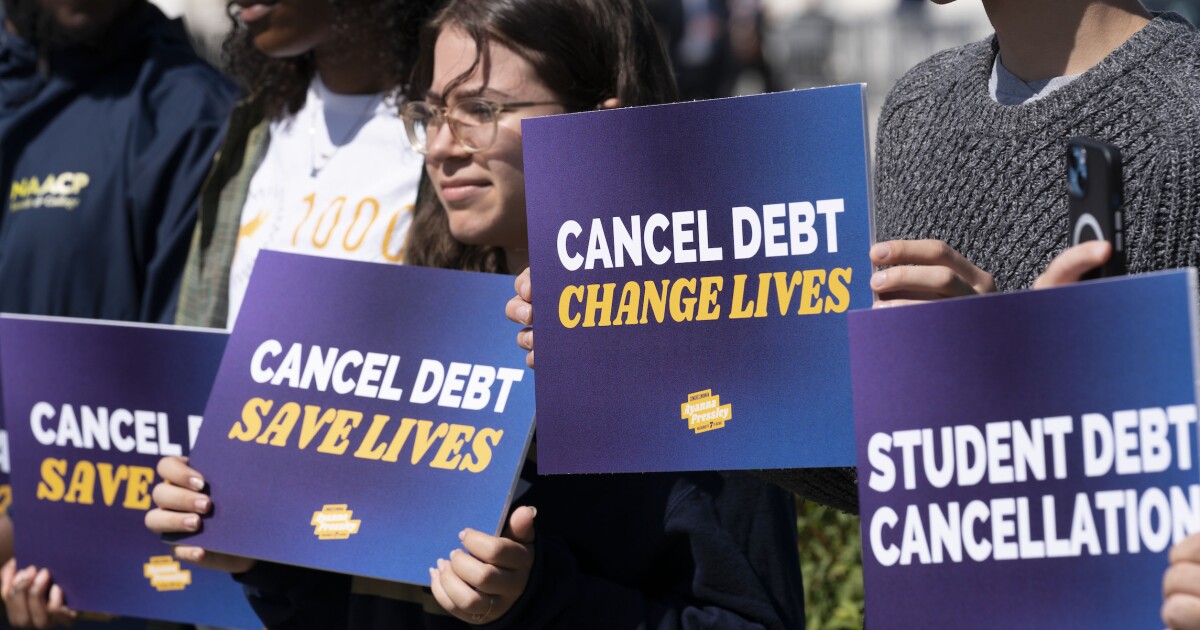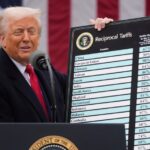

President Joe Biden will need to survive legal scrutiny to deliver on his student loan campaign promise ahead of the midterm elections.
Biden announced in August that he’d “cancel” up to $20,000 in student debt for millions of borrowers, a program that is estimated to cost $500 billion. But with two lawsuits filed arguing the program is illegal, it all hangs in the balance with just weeks to go before voters decide who controls Congress for the next two years.
BIDEN’S NEXT STUDENT LOANS MOVE COULD PLACE BILLIONS MORE IN DEBT ON TAXPAYERS
“The student loans relief program is going to help tens of millions of people. Ninety percent of folks who are on that program are making under $75,000 a year,” White House press secretary Karine Jean-Pierre said when asked about one of the lawsuits. “Opponents of the Biden-Harris administration student loan plan are trying to stop it because they know it will provide much-needed relief for working families.”
Those filing suit make a different claim — that the program violates the Constitution. They argue that only Congress has the power to set monetary policy, that the pandemic no longer qualifies as a national emergency giving the president expanded powers, and that the program also violates the Administrative Procedure Act, which lays out the method federal agencies should follow to ensure the executive branch’s policies are well reasoned and explained.
The biggest challenge may be finding someone with legal standing to sue.
The Pacific Legal Foundation filed the first lawsuit last Tuesday. PLF, a libertarian law firm, sought a temporary restraining order because some borrowers would incur a tax bill if their loans were canceled automatically, in some cases raising the total amount they would pay.
The Department of Education responded to the suit by quietly updating its policy to counter the plaintiff, and a judge rejected the plaintiff’s claim.
In the second suit, six Republican-led states are suing on multiple grounds, including that some private banks that hold loans would be financially harmed. In response, the Department of Education again quietly changed its guidance to state that those borrowers no longer qualify.
The Progressive Policy Institute’s Ben Ritz tweeted that the Biden administration is playing “an aggressive game of standing whack-a-mole.”
The latest move could cut 4 million borrowers out of the program, though the White House told NPR the true number will be closer to 800,000.
Another question is what effect, if any, the issue will have on the midterm elections if borrowers aren’t sure their loans will actually be forgiven. The move fulfills a Biden campaign promise and is thought to help energize young voters. But interviewees for this story said the issue will have minimal effect in November.
“I think the timing [of the lawsuit] by GOP attorney generals was odd,” said Colby College visiting politics instructor Sandy Maisel. “But I doubt it will have any effect on midterms.”
Republicans are predicting a blue-collar backlash from the sizable majority of people who do not have student loans, but there are conflicting polls on the program’s popularity. An Economist-YouGov poll found that 51% of respondents support it, with 39% opposed. Meanwhile, a Cato Institute poll found that 76% opposed it if it drives up the price of college, as did 64% if it raises taxes.
The popularity of the student debt transfer largely falls along partisan lines, which is why American Enterprise Institute senior fellow John Fortier says it’ll be a midterm wash.
“When I look beyond the top line at the polling, I see that Democrats will like this and many Republicans won’t,” he said. “I don’t see this being a wedge issue.”
CLICK HERE TO READ MORE FROM THE WASHINGTON EXAMINER
The White House holds that the student debt transfer is legal, though it so far hasn’t gone into much detail. Assistant press secretary Abdullah Hasan said the White House is “lawfully giving working and middle-class families breathing room.”
Jean-Pierre was asked Friday if the two policy tweaks made so far would be the last and did not answer directly.
“The Department of Education continues to explore alternative ways to provide relief to those borrowers with commercially held loans,” she said. “I do want to say that when you think about what we’re trying to do, right, we’re trying to give relief to everyday Americans.”






